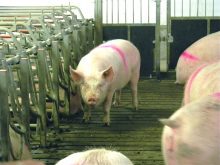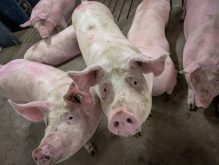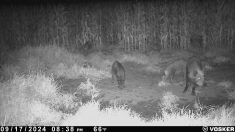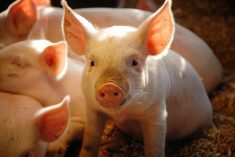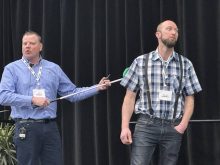It was never going to end well for animal agriculture.
When a farmer called the police after a protester fed a pig on a truck some water at a stoplight, it started a process that has been absurd and head shaking.
The process came to an end May 4 with the acquittal of Anita Frajnc, professional pig protester.
It’s a case that never should have got to trial — it was an unwinnable mischief charge — but it did and gave animal rights campaigners the biggest public platform they’ve ever had in Canada.
Read Also
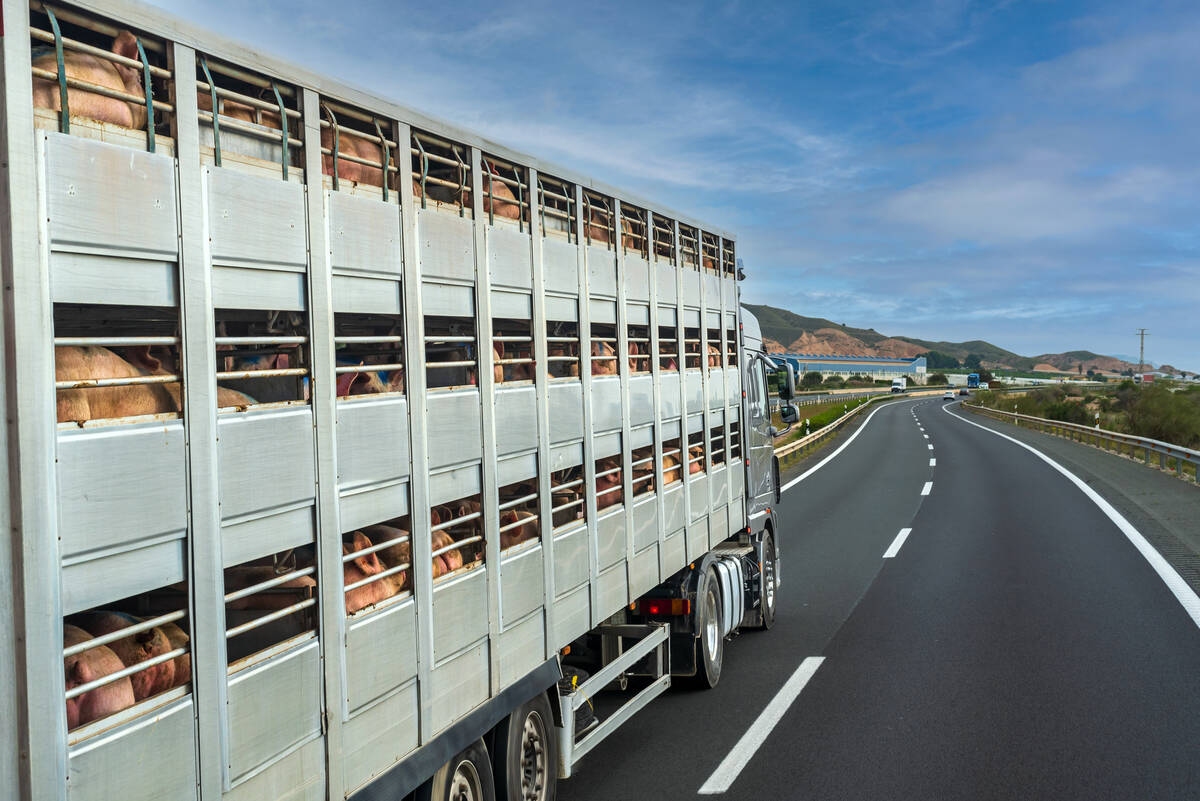
Pig transport stress costs pork sector
Popular livestock trailer designs also increase pig stress during transportation, hitting at meat quality, animal welfare and farm profit, Agriculture and Agri-Food Canada researcher says
In the public relations world, they talk about ‘earned media,’ the number of stories you get on a topic that are positive to your area of interest. The animal rights people won this one by a landslide.
The question the animal agriculture world needs to ask itself is how it can keep from giving people bent on destroying their way of life such a pulpit again.
Perhaps someone should have had a stiff chat with the farmer, Van Boekel Farms, and laid it out. Maybe someone did. But once the wheels of the justice system are in motion, they grind on. I am sure the farmer’s frustration level was significant. He testified that his concern was around the safety of the food supply and for the people who too often crowd around his trucks.
“I don’t see what we could have done,” says Bruce Kelly, program manager with Farm & Food Care Ontario. “It wasn’t about us. We were bystanders trying to support the farmer. As agriculture groups we had no ability to present evidence.
“The farmer felt his drivers were being harassed. He then went to police for support and what ensued, ensued.”
Kelly is right. The court system is about the victim being given the chance to prove their innocence. In this case, one had to wonder if the defence attorneys were even trying to prevent the conviction of their client on the mischief charge. Instead of working to prove her innocence, they used their time in court to push their agenda of the elimination of livestock farming.
In his decision, Judge David Harris dissected most of Frajnc’s witnesses. Some he said he wished he had never let on the stand. Others he said even contradicted Frajnc’s own testimony. The judge should be commended for his patience, thoughtfulness and sense of humour in handling this case. He lamented that while his courtroom was jammed for a mischief trial, the murder trial next door was empty.
The trial did give animal agriculture a chance to tell a food safety story, but that’s a technical story and doesn’t match the power of the platform given activists or their emotional arguments.
“We see this as a very limited case, one person on a sidewalk in Burlington,” says Ontario Pork chair Eric Schwindt. “As the judge stated, the trucker did everything correctly and the pigs were dealt with humanely and safely.”
However, with blanket media coverage of the trial and the opinion pieces and media panels the case spawned, the public and media did not see it as limited. Animal rights activists see it as a watershed moment, the next step in their revolution.
The case was a gift and it was given to them.







